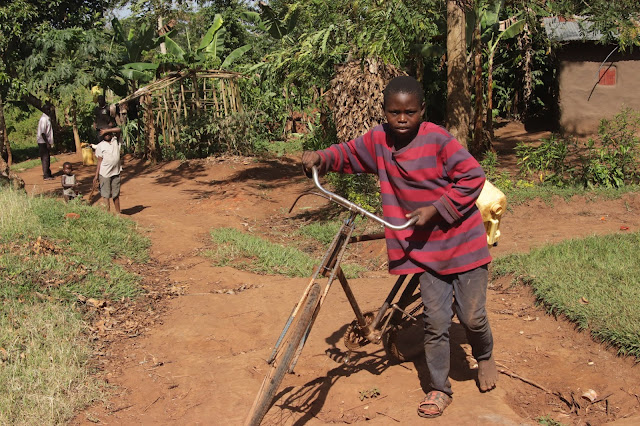Day 4 - Between mandate and colony
While the world looked the other way, Belgium took its
responsibility against all governing agreements and took part in UNAMIR. Did we
still have an obligation to Rwanda even though we severed all ties with our
colony in 1962? Or maybe it was our way of making up for a not-so-successful
mandate? Was it our way to make up for the fact that we made the difference in
ethnicity so official and emphasized it? Or did it finally dawn on us that we
failed Rwanda (then still Ruanda-Urundi) and instead of preparing our mandate
for an independent existence, we did everything in our power for the mighty
motherland. In any case, we failed Rwanda for a second time in April 1994. With
much worse consequences this time. The deaths of nearly one million Rwandans
for only one reason: they had the wrong ethnicity. It was not the first
genocide, nor will it be the last, if we look at the world around us.The moral
question: did the death of ten Belgian paratroopers outweigh the million
Rwandan victims that would cost the genocide? In other words, was the
withdrawal of our troops justifiable? In our sometimes inhuman world, not every
life is worth the same. We do not miss any sleep over humanitarian crises as
long as we are not involved ourselves. When ISIS began its advance in the
Middle East, it was just a footnote in the newspaper or news. Yazidi women were
raped, held hostage and sold as sex slaves, gay people were murdered by throwing
them off buildings. People were stoned. And yet we did not budge. But when ISIS
also began to kidnap, held hostage and
behead white people, the western world was turned upside down. As if the life
of a Yazidi woman does not have the same value as that of a white man. These
differences are also noticeable in Africa. Healthcare, which we regard as a
fundamental right, is really only accessible to the wealthy and to white
tourists. Where we, as whites, end up in the very well-equipped private
hospitals, only a run down nursing post is available for a poor black person.
Medical care should be the same for everyone and should not depend on rank or
status.Is human life worth the same everywhere? Obviously not. Any lost human
life in any war and on whichever side one fights in that war is one too many.To
come back to the key question: did the death of our soldiers outweigh a million
victims? The answer must of course be ‘no’. How painful for the families and for us as a nation. The
world looked the other way. We watched from a distance as the citizens of our
former colony slaughtered each other. It was the lack of empowerment and incorrect assessments, both military and political, in Belgium and internationally that led
to the genocide.
Only in 2000, then Prime Minister Guy Verhofstad,
apologied on behalf of the Belgian people :
‘In
the name of my country
I pay
tribute to the genocide victims
and
in the name of my country, my people,
I beg
I ask for forgiveness’.
Belgium will always be part of Rwanda's history, just as
Rwanda will forever be part of our past. Once joint it is difficult to cut
the umbilical cord completely. But in the end, after infinite grief, our child
became as they say, ‘the land of a thousand hills and a million smiles’.


Comments
Post a Comment